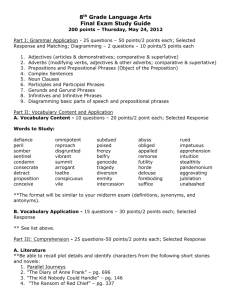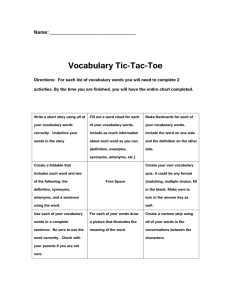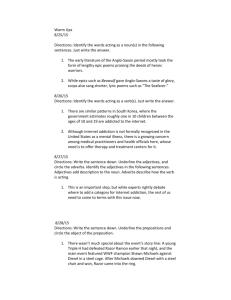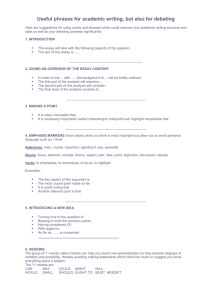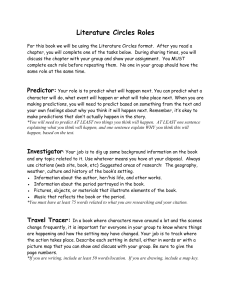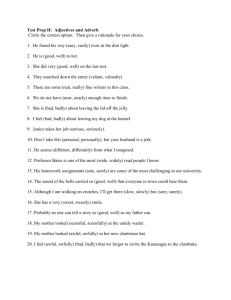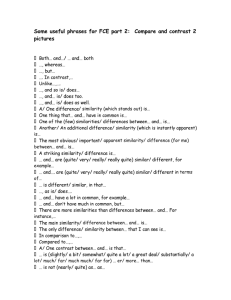Study Guidelines
advertisement
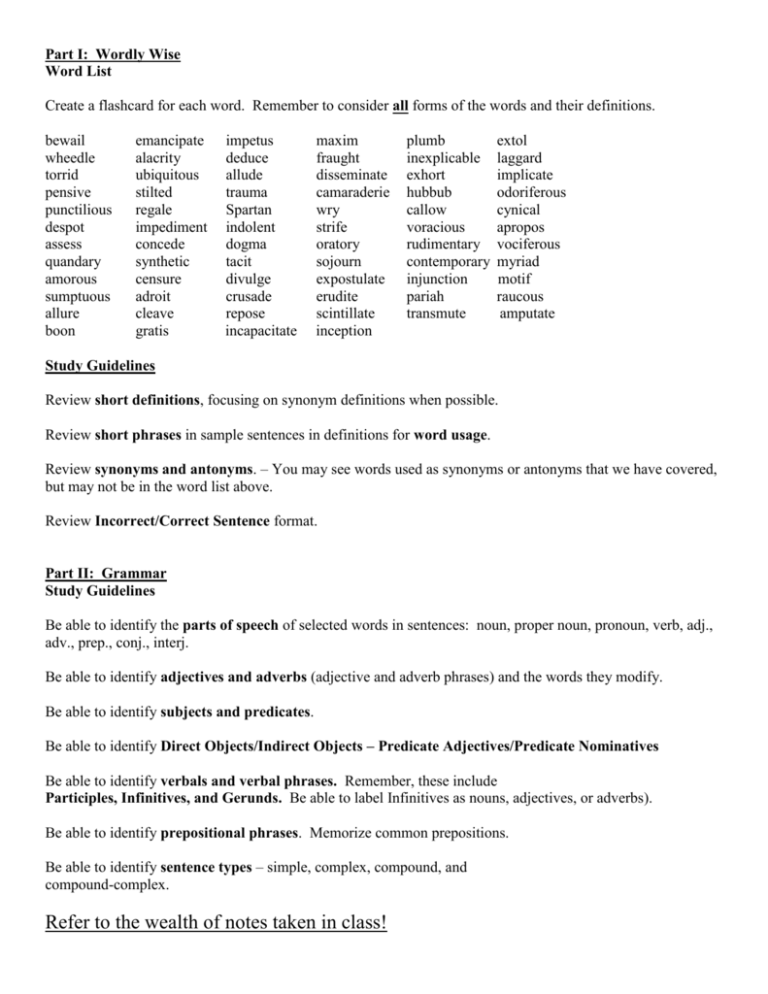
Part I: Wordly Wise Word List Create a flashcard for each word. Remember to consider all forms of the words and their definitions. bewail wheedle torrid pensive punctilious despot assess quandary amorous sumptuous allure boon emancipate alacrity ubiquitous stilted regale impediment concede synthetic censure adroit cleave gratis impetus deduce allude trauma Spartan indolent dogma tacit divulge crusade repose incapacitate maxim fraught disseminate camaraderie wry strife oratory sojourn expostulate erudite scintillate inception plumb inexplicable exhort hubbub callow voracious rudimentary contemporary injunction pariah transmute extol laggard implicate odoriferous cynical apropos vociferous myriad motif raucous amputate Study Guidelines Review short definitions, focusing on synonym definitions when possible. Review short phrases in sample sentences in definitions for word usage. Review synonyms and antonyms. – You may see words used as synonyms or antonyms that we have covered, but may not be in the word list above. Review Incorrect/Correct Sentence format. Part II: Grammar Study Guidelines Be able to identify the parts of speech of selected words in sentences: noun, proper noun, pronoun, verb, adj., adv., prep., conj., interj. Be able to identify adjectives and adverbs (adjective and adverb phrases) and the words they modify. Be able to identify subjects and predicates. Be able to identify Direct Objects/Indirect Objects – Predicate Adjectives/Predicate Nominatives Be able to identify verbals and verbal phrases. Remember, these include Participles, Infinitives, and Gerunds. Be able to label Infinitives as nouns, adjectives, or adverbs). Be able to identify prepositional phrases. Memorize common prepositions. Be able to identify sentence types – simple, complex, compound, and compound-complex. Refer to the wealth of notes taken in class!

